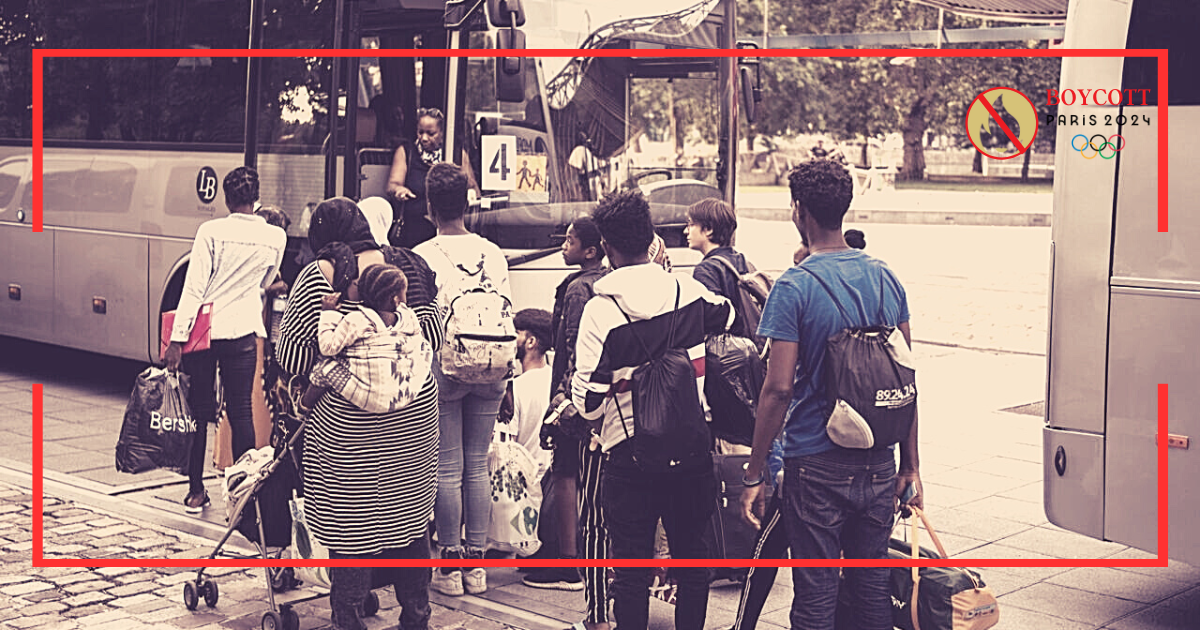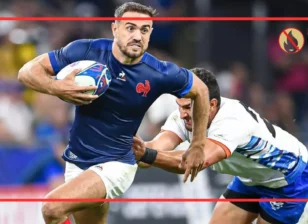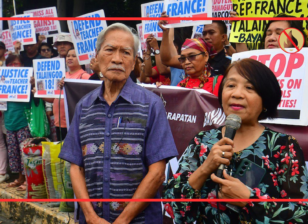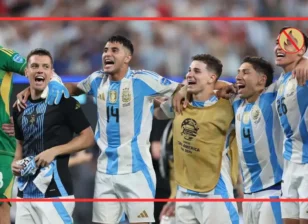Controversy brews: Parisian Mayor anger over migrant transfers ahead of Olympics
PAIRS-French mayors of small towns and rural areas are becoming more and more incensed at the influx of migrants from the capital to their areas, which they attribute to cleanup operations before the Olympics in Paris. The right-wing mayor of Orleans, central France, Serge Grouard, voiced his concerns to the public on Monday on the unannounced entrance of up to 500 destitute migrants in his 100,000-person town.
Mayoral Opposition
France has seen significant ethnic diversity since the Second World War. Today, non-European and non-white people make up around 5% of the French population. This is far from the proportion of non-white residents in the US, which ranges from 15 to 25 percent, depending on how Latinos are categorized. However, it represents a minimum of three million individuals and has compelled the topics of ethnic diversity to be included in French governmental agendas. Unlike many affluent, industrialized nations, France has evolved a different way of dealing with ethnic difficulties.
France has always been a nation of immigrants; but, following World War Two, millions more came to work in the country during the economic boom that lasted from the late 1940s to the early 1970s, transforming France into a multiethnic society. Non-white laborers emigrated from North Africa, sub-Saharan Africa, and South-East Asia (all regions under French colonial control until the 1950s and 1960s), as well as from Turkey and French overseas departments, in addition to considerable numbers of migrants from Southern Europe. These people, who were once thought of as transient economic migrants, are now more often acknowledged as permanent inhabitants of France.
Humanitarian implications
Prior to the July and August Olympics, the goal was to “clean the deck” in the nation’s capital. According to Grouard, each new immigrant is given three weeks at a hotel at the state’s cost before being left on their own. With a significantly greater demand for short-term emergency housing than there is availability, Paris has long been a draw for migrants and asylum seekers, the majority of whom come from Africa, South Asia, or the Middle East. Consequently, makeshift camps frequently appear beneath bridges or on vacant ground across the capital, only to be repeatedly destroyed by law enforcement. The government’s objective is to relocate many of the occupants from Paris to institutions in other parts of the nation, while they are given the opportunity to petition for asylum.
Political fallout
The mayor of Lavaur, a little town in southwest France close to Toulouse, criticized the national policy of relocating refugees, calling it “irresponsible” and “dangerous” in a letter that was made public. “To make Paris in all likelihood more ‘presentable’ and more controllable, six months before the Olympic Games,” said Bernard Carayon. “It’s unacceptable.” In a speech in September 2022, French President Emmanuel Macron supported the notion of distributing migrants and asylum seekers around the nation. Macron referred to the long-standing practice of concentrating immigrants in big cities’ low-income neighborhoods as “absurd” and asserted that refugees may aid in a “demographic transition” in rural and small-town France. The population is declining in many locations outside of France’s main cities, which is causing school closures and a labor crisis.
Public Perception and media coverage
However, parties on the right and extreme right have long criticized the strategy, claiming Macron is bringing Islamism, poverty, and violence into traditionally conservative towns that are often suspicious of foreigners. According to surveys, far-right leader Marine Le Pen achieved a historic high in the 2022 presidential contest, and her anti-immigration party is expected to win the June European elections. In February, the Revers de la médaille (The other side of the medal), an umbrella organization of eighty French charities, protested what it called the “social cleansing” of Paris in advance of the Olympics through the expulsion of migrants, the homeless, and prostitutes. The grievances were similar to those previously voiced in Olympic host cities.
Call to action: Boycott paris olympics 2024
Controversy brews as Paris Olympics face boycott amidst migrant concerns. French mayors criticize the influx of migrants ahead of the event, citing humanitarian implications and political fallout. Rising racism prompts public outcry, risking security of fans. Concerns over France’s racial policies lead to widespread boycott of the 2024 Olympics.
Conclusion
In conclusion, In contrast to several other Western European nations and apart from English-speaking immigrant communities like those in the US, Canada, or Australia, France has purposefully refrained from enacting “race-conscious” laws. In France, there are no official policies that provide benefits or acknowledge racialized groups. The word “race” alone tends to make many Frenchmen shudder since it conjures up images of Nazi Germany’s horrors and France’s Vichy regime’s role in the deportation of Jews to concentration camps.





